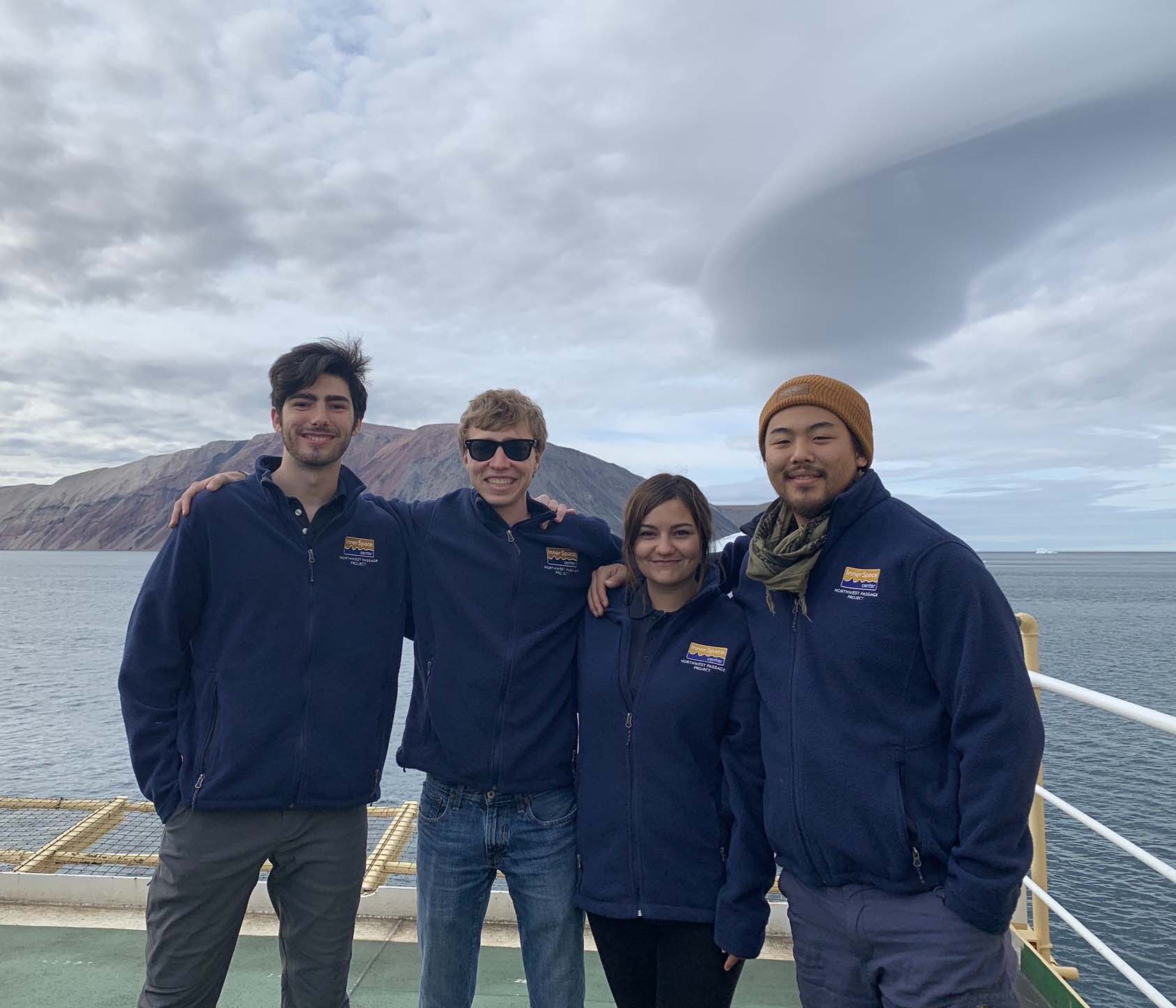
The public is invited to join four CSU Channel Islands (CSUCI) students as they relive the 18-day, 2,000-mile research journey they took through the breathtaking Canadian Arctic archipelago during the summer of 2019.
Viewers who RSVP online can experience the expedition through “Frozen Obsession,” a documentary about the journey that will air live on YouTube Monday, Feb. 8 from 6 to 7:30 p.m.
Led by the University of Rhode Island Graduate School of Oceanography and funded by the National Science Foundation (NSF), the Northwest Passage Project (NPP) was a collaborative effort between the University of Rhode Island (URI)’s Inner Space Center (ISC); the Graduate School of Oceanography (GSO); the film company, David Clark, Inc.; CSUCI, and four other U.S. universities classified as Minority Serving Institutions (MSIs).
“Beyond the obvious educational value, this expedition was about getting students onboard who would not otherwise get the chance to cruise the High Arctic Canadian archipelago,” said Professor of Biology Amy Denton, Ph.D. “They got to connect with Arctic history and the indigenous Arctic people and animals. And they had some really great science.”
The four CSUCI students were among 23 graduate and undergraduate science majors from all of the participating universities. Directed by the scientists and scholars onboard, the students collected samples of water, ice and air in order to study the impact of climate change on the environment and biodiversity in the Canadian Arctic Archipelago.
“What was truly sobering was the discovery of microplastics in ice core samples,” said 2020 Biology and Chemistry graduate Nik VanKeersbilck, who is pursuing master’s degree in Bioinformatics at the University of Iceland in Reykjavík. “Finding tiny pieces of plastic in what first appeared to be pristine ice is extremely troubling.”
VanKeersbilck will be part of a 30-minute panel discussion along with Denton and the three other CSUCI students on the expedition: 2020 Biology graduate Korenna Estes, Biology major Triston Millstone; and Environmental Science and Resource Management major Melvin Kim.
CSUCI students accustomed to beaches and palm trees saw polar bears and narwhals, visited 200-year-old graves of some of the first Arctic explorers and interacted with indigenous people who call the Arctic home.
“Hearing from the native Inuit people on how their lives have changed as a direct result of climate change is heartbreaking,” VanKeersbilck said. “They are witnessing, first-hand, the changes that a warming climate is having. Their lives have revolved so heavily around the sea ice that is quickly diminishing.”
Research expeditions like this one are critical, according to Denton, as the Arctic is the proverbial canary in the coal mine.
“It’s not just a frozen wasteland far away,” Denton said. “It is connected to all global processes. What happens in the Arctic impacts all of us—food webs, birds, whale migration. The Arctic is kind of the lynchpin in the global oceanic system. It’s not this far-removed ice cap sitting on top of the world.”
As an educator, Denton is pleased to see the intense scientific curiosity further ignited by a journey through the wilderness that she has always found to be profoundly beautiful.
“It gave our students an incredible chance to experience the Arctic. You can see their joy in so many of the camera shots,” Denton said. “They are the scientists who are going to have to find the best way to address climate change and it’s going to be difficult. But to see that joy and sense of immediacy—I share their joy.”
To RSVP for “Frozen Obsession,” visit:
https://www.eventbrite.com/e/frozen-obsession-screening-at-csuci-tickets-137487134721.
